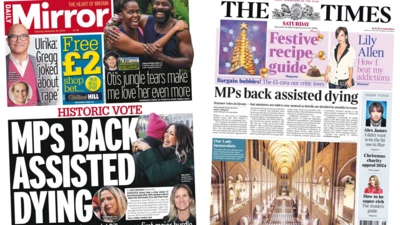We've updated our Privacy and Cookies Policy
We've made some important changes to our Privacy and Cookies Policy and we want you to know what this means for you and your data.
Child mental health online trial to be held in Highlands
Image source, PA
Children with conditions such as depression and autism could get help more quickly via online psychiatric assessments, it has been claimed.
The use of a secure, computerised system for young people and their parents or guardians is being trialled in the Highlands and Finland.
Leading the trial is a team from the University of Aberdeen.
It said online assessments could offer a service in an area of health care with few staff and a heavy workload.
The trial will involve four broad categories:
- Anxiety, depression, Obsessive Compulsive Disorder, phobias
- Attention Deficit and Hyperactivity Disorder
- Autism, Asperger's syndrome
- Oppositional and conduct disorders
The University of Aberdeen said there were also other conditions to be considered, such as schizophrenia.
'Timely services'
During the trial, which will take place in the NHS Highland region, 50% of patients will receive the new Development and Wellbeing Assessment system and 50% will receive the current method of treatment.
After meeting with their GP, parents involved in the trial will be given a set of codes to log into the secure computerised system where they will answer a series of interview questions.
The interviews would involve parents alone, or with their child and their child's teacher depending on the age of the child.
Once the interviews are completed, the resulting information will then be passed to a child psychologist who looks at a computerised summary of the data and makes a diagnostic assessment.
Prof Philip Wilson, head of the University of Aberdeen's Centre for Rural Health said: "This is an important trial to test a new service which could ultimately lead to a slicker, more thorough and effective system for psychiatric referral for children and young people.
"The current system is inefficient at best and often results in families being sent from pillar to post due to inaccurate or non-comprehensive diagnosis.
"It's bad for the children and young people, for the parents and teachers, and the GP who has to manage a situation which is often drawn-out and frustrating for all involved."
He added: "It is our hope that the new system will contribute to be improved with more equal access to timely outpatient psychiatry services, specialist evaluation and treatment according to best practice, improved capacity in primary care and more rational use of specialist services."
Top Stories
More to explore
Most read
Content is not available








